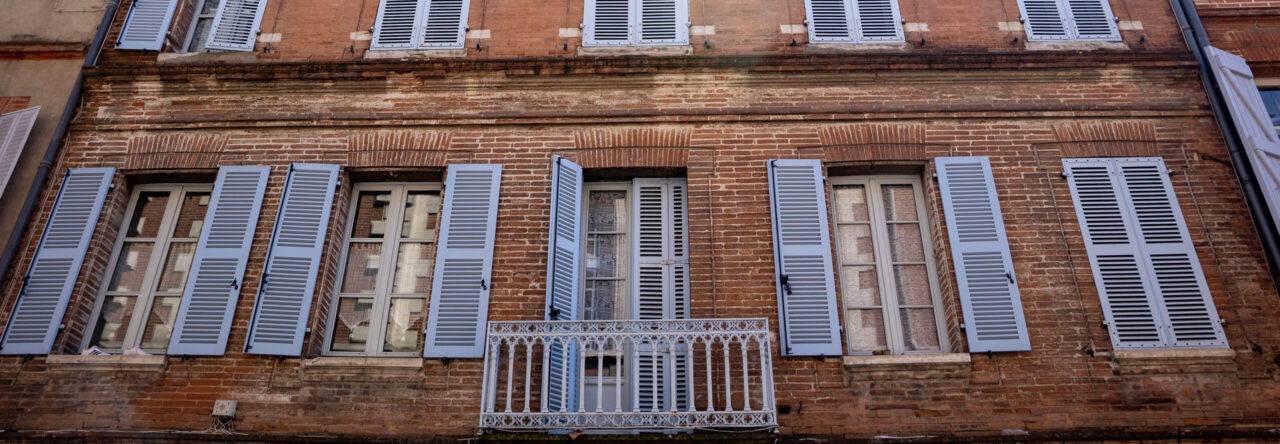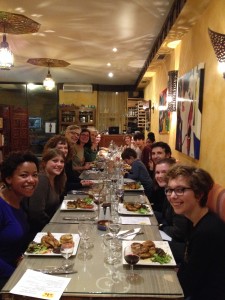My time in Toulouse is quickly coming to an end and the time has passed quickly. It seems like I only arrived a month ago. I am happy with all of the cultural experiences I am had during my three months and I will leave with lots of great memories. Life in Toulouse for American students is filled with culture and activities.
Between my classes and schoolwork, I find the time to try tea salons, travel, play basketball, go shopping and spend time with my friends. Even though I do not have much time to go to museums or plays, I learn the French culture through meals. Firstly, there is not a shortage of tea salons and bars. I have a favorite bar and tea salon and I go so often that the waiters recognize me. My favorite cake is made from raspberries, pistachios and coconut. With a pot of tea, the cake is perfect.
Next, I have tried “raclette,” a stereotypical French meal. Because it is very heavy, it is often eaten in winter and in the mountains. You put the electric oven in the middle of the table, heat slices of cheese, put it on top of potatoes and add some salami or meat. It uses typical French ingredients and when I ate it with my French friends, the environment was fun and relaxed, so we enjoyed the meal after a rainy day.
Finally, I cannot talk about French food without mentioning crepes. I eat crepes at least once a week. Every Sunday, my hosts cook them for dinner. Maybe because of globalization, even Americans like crepes. However, the method of eating them is not the same. In America, they are eaten for breakfast or dessert. In France, savory crepes are more popular and can be eaten at any meal. And, of course, they are eaten all the time.
My life in Toulouse as an American student revolves around food. I have tried new things, like “racelette” and “cassoulet,” and I like to find new restaurants.
-Jessica Sykes





